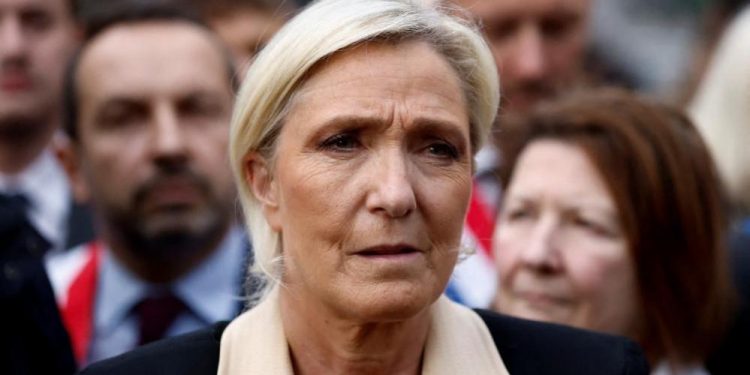A political earthquake has shaken France and rattled Far-Right parties across the globe after a French court on 31 March convicted Marine Le Pen. Leading France’s Far-Right National Rally party, Le Pen has been convicted of embezzlement and has been barred from seeking public office for five years. The verdict came when she and her party had emerged as possible winners of the 2027 presidential election. Millions of people in France backing the party are outraged as their hopes received a great setback with the likely elimination of Le Pen from the contest. The latter has, of course, denounced the verdict terming it as a “political” move aimed at preventing her from running in the presidential election. She also described the ruling as a violation of the rule of law and said she would appeal. She would, however, remain ineligible to be a candidate until the appeal is decided. She was also given four years’ imprisonment, with two to be served under house arrest and two suspended – which would not apply pending appeal.
The court ruling has shaken French politics to its depths as everyone expected Le Pen to succeed President Emmanuel Macron at the end of his second and final term. It is such a blow that even some of the opponents of Le Pen fear her party may play the “martyr’s” card and brighten the chances of her nominee’s victory in the presidential race. However, it is too early to say how the case will influence the voters, even though the possible exclusion of Le Pen from the contest may help mobilise diehard supporters the way Donald Trump’s legal problems eventually helped him in his goal of becoming the US President for the second term.
Le Pen’s denial of the charges is only to be expected and her characterisation of the verdict as a “political decision” to prevent her from being elected President is itself a political statement intended to convince the electorate about her claimed innocence. But, the whole framing of charges, investigation and trial have only shown politicians of any hue – right, left and central – may not necessarily be immune to the virus of corruption. When Le Pen said the ruling marked a “fateful day for our democracy,” it sounded so familiar as US President Donald Trump, who had instigated a dastardly attack on democracy in his own country, also often swears by democracy. In fact, moments after the French verdict banning Le Pen from contesting elections for five years was pronounced, Trump said: “That sounds very much like this country.” This was an apparent reference to legal cases that he himself had faced before he took office.
Also Read: Religious Freedom
Elon Musk, Tesla’s billionaire owner, and chief of Trump’s Department of Government Efficiency (DOGE), a known Far-Right supporter, also immediately rallied behind Le Pen and said the court ruling would “backfire like the legal attacks against Trump.” He had also backed the Far-Right in Germany.
However, the judges’ decision, backed by more than 150 pages of legal justifications after a nine-week trial, was necessary because nobody was entitled to “immunity in violation of the rule of law,” the head judge, Bénédicte de Perthuis, said. The court convicted Le Pen on charges of embezzlement of public funds over a fake jobs scam at the EU parliament. Nine individuals from her National Rally party, including Le Pen herself, were convicted for a scheme in which they exploited European Parliament expenses to hire “fictitious” parliamentary assistants who were, in reality, performing duties for the party. Additionally, twelve assistants were found guilty of concealing a crime, with the court estimating that the total value of the scheme reached 2.9 million euros.
The verdict, being described as a bombshell, is to be hailed for two reasons. One lesson from it is whatever the rabble-rousing power of Far-Right politicians in the name of so-called nationalism or patriotism, the real intent of many of them to plunder the resources of a country for themselves and their cronies should not be confused. Second, the court is supposed to do its job without caring for the political consequences of its rulings. This is exactly what the French court has done at a time when the judiciary in many countries around the world is often willingly bowing down and accepting a position of being used as an extension of the government.







































